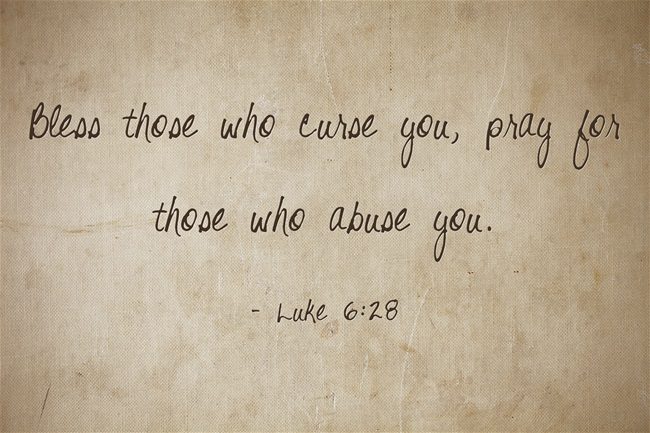Where does the saying “God bless you” come from? What about where “good bye” comes from?
Blessing Others
Jesus said “bless those who curse you, pray for those who abuse you” (Luke 6:28) so asking for God’s blessing on someone is nothing new. Blessings were a part of the patriarchal heritage in Ancient Israel, going all the way back to Noah and Abraham, even before Israel came to exist as a nation. In the beginning, “God blessed them” and told them “Be fruitful and multiply and fill the waters in the seas, and let birds multiply on the earth” (Gen 1:22).
Origins of “God Bless You”
There is no way to be absolutely certain where the saying “God bless you” comes from but the custom continues into our day and is a common occurrence when someone sneezes. It is believed that during the plague of AD 590 Pope Gregory I commanded unceasing prayer and to say “God bless you” right after someone sneezed because sneezing was one of the first signs of the plague. Since that time, it has been the habit of saying “God bless you” after a sneeze, whether they believe in God or not. It is nearly an automatic response. Ironically, some cultures believe that sneezing is a good sign; a sign of prosperity and health.
Origins of “Good Bye”
The origins of “good bye” might surprise you. It did me! These words originated in 1565-75. Goodbye or good bye is actually a contraction of “God be with ye” and so “God be with you” came to be abbreviated in a shortened form and simply became “good bye” over the years. The next time someone tells you “goodbye” you tell them, “God be with you too” and see their reaction. Then tell them what it really means. Today, we like to substitute (really, “take out”) the word Christmas to make it more secular and replace it with the words “happy holidays” but the word holiday also has a surprising origin. Holiday is a compound word that comes from the Old English word “hāligdæg” meaning “holy” (hālig) “day” (dæg) so if someone says to you “Happy holidays” tell them “Thank you and happy holy day to you too.”
God bless You
One of my favorite sayings when I am about to leave people, end an email or end a phone call is say “May God richly bless you.” It sounds like a nice ending but it’s a lot more than just a quaint ending; it is a request or prayer to God for Him to not just bless them, but to bless them richly or abundantly and I don’t mean necessarily mean financially bless them (but not to the exclusion of it either). This is the Christian calling; to ask God to bless those who hate us and persecute us and say all kinds of evil about us (Matt 5) and “Do not repay evil for evil or reviling for reviling, but on the contrary, bless, for to this you were called, that you may obtain a blessing” (1st Pet 3:9) “But even if you should suffer for righteousness’ sake, you will be blessed. Have no fear of them, nor be troubled” (1st Pet 3:14) and even “If you are insulted for the name of Christ, you are blessed, because the Spirit of glory and of God rests upon you” (1st Pet 4:14). Don’t you want that?
Conclusion
I pray that God does richly bless all who believe and that God directs those who still refuse to believe to the fact that Jesus is God and there is no other possible way to enter the kingdom and for them to be saved (Acts 4;12). There are only two possible paths to God; one is to be judged for all they’ve done (Rev 20:12-15) and one path enters the New Jerusalem (Rev 22) and if you so, you will be so blessed by God that I can’t even describe it in words. So goodbye for now (God be with you) and “happy holy days” when those days arrive.
Article by Jack Wellman
Jack Wellman is Pastor of the Mulvane Brethren church in Mulvane Kansas. Jack is also the Senior Writer at What Christians Want To Know whose mission is to equip, encourage, and energize Christians and to address questions about the believer’s daily walk with God and the Bible. You can follow Jack on Google Plus or check out his book Teaching Children the Gospel available on Amazon.












